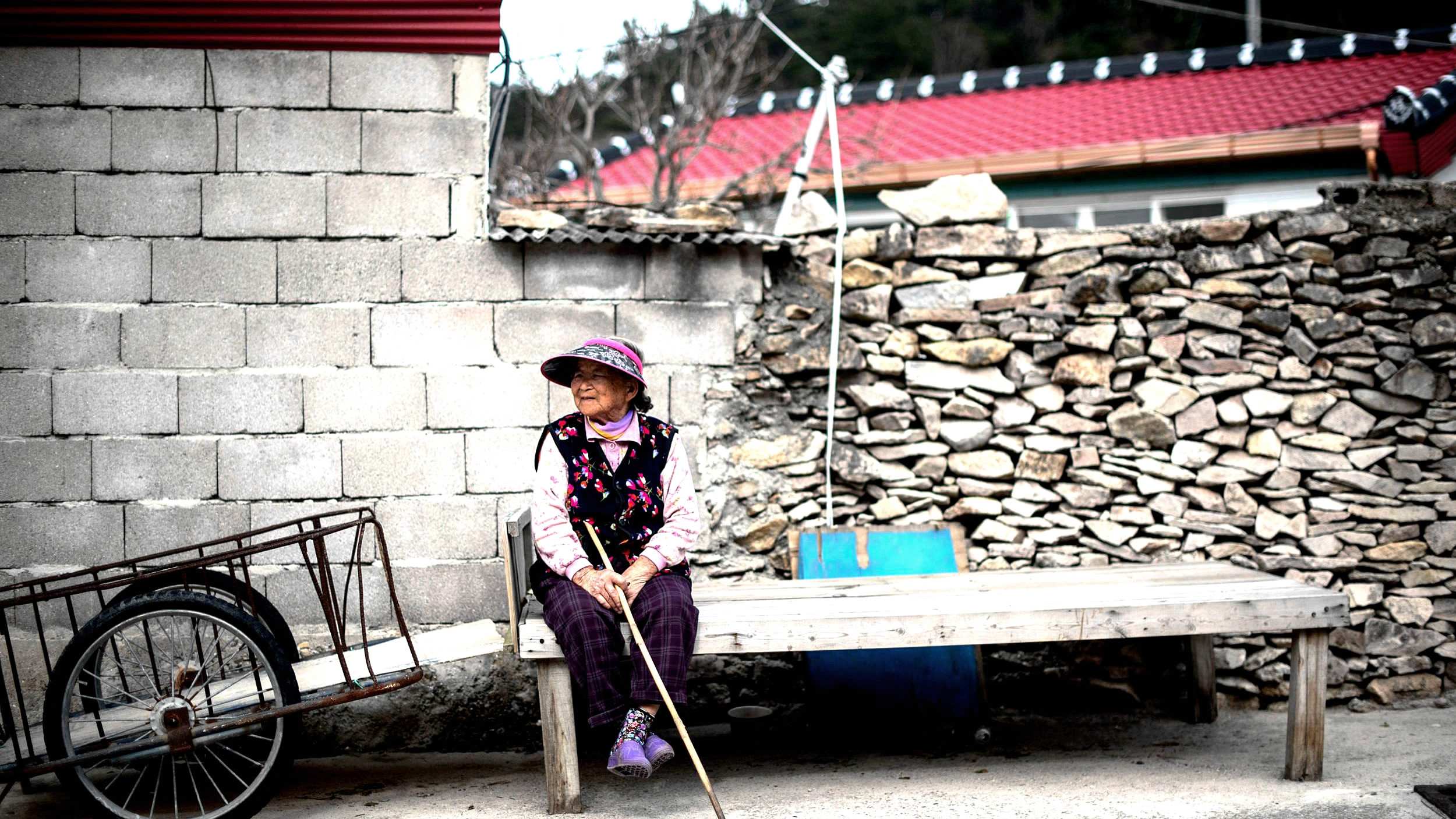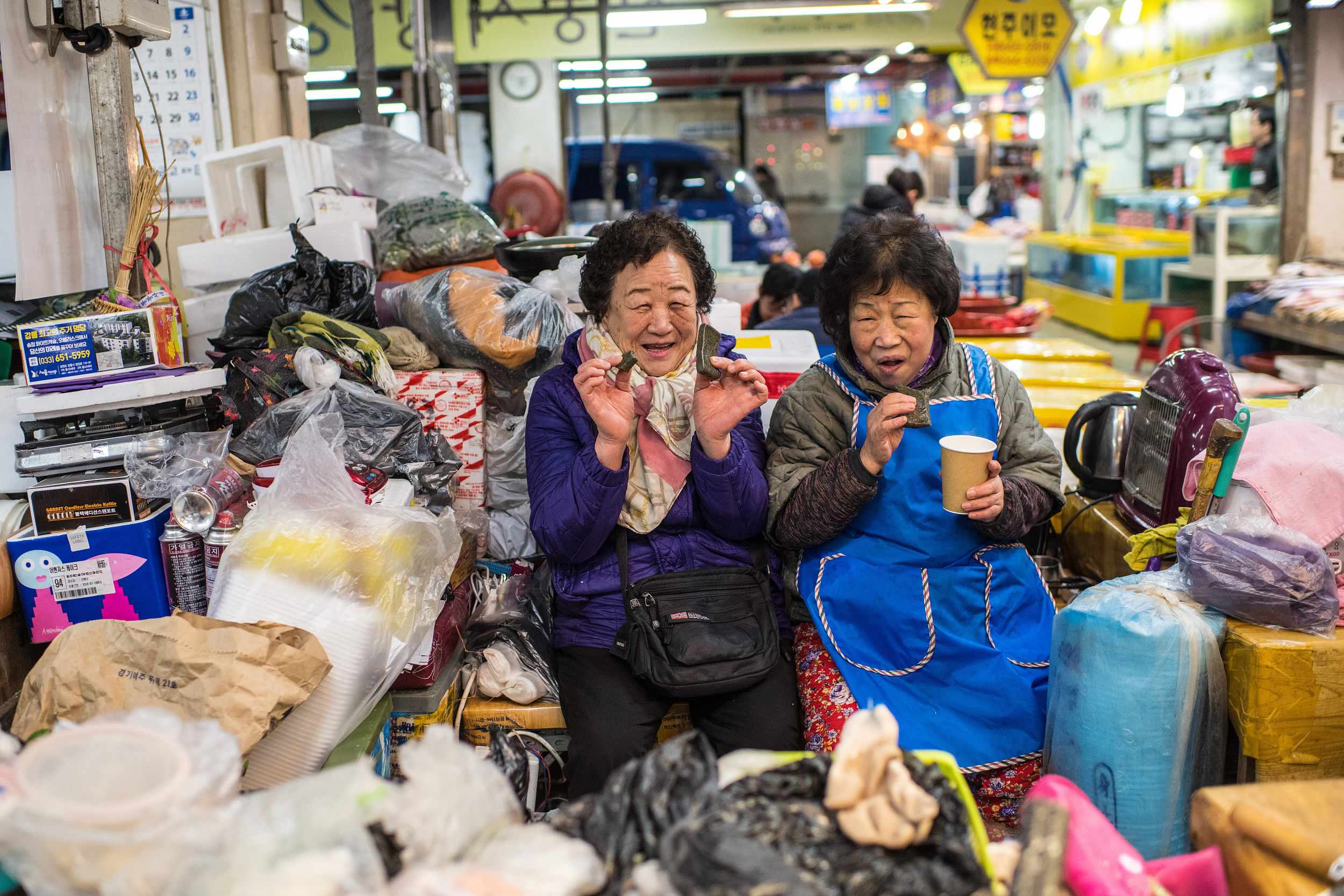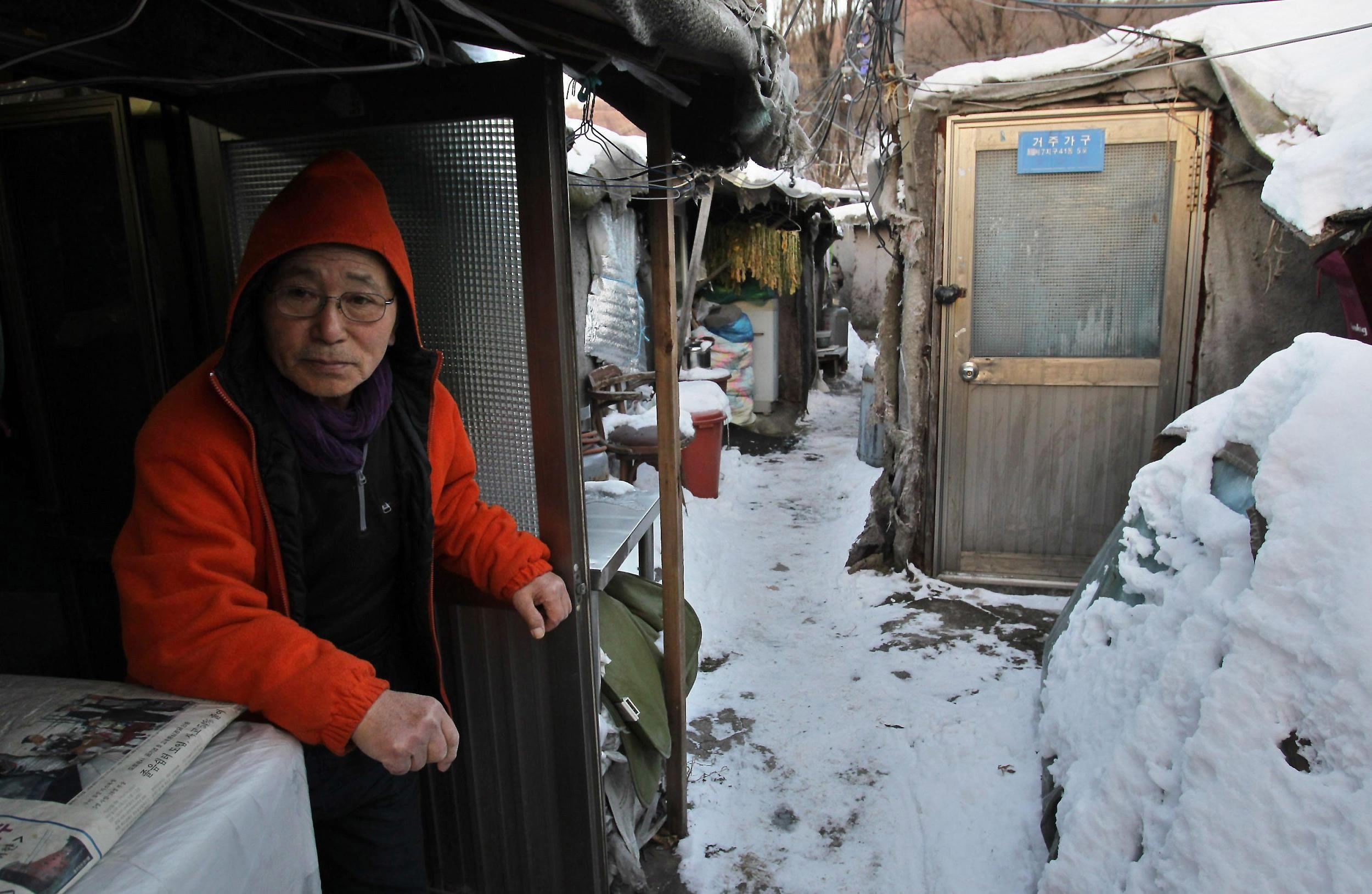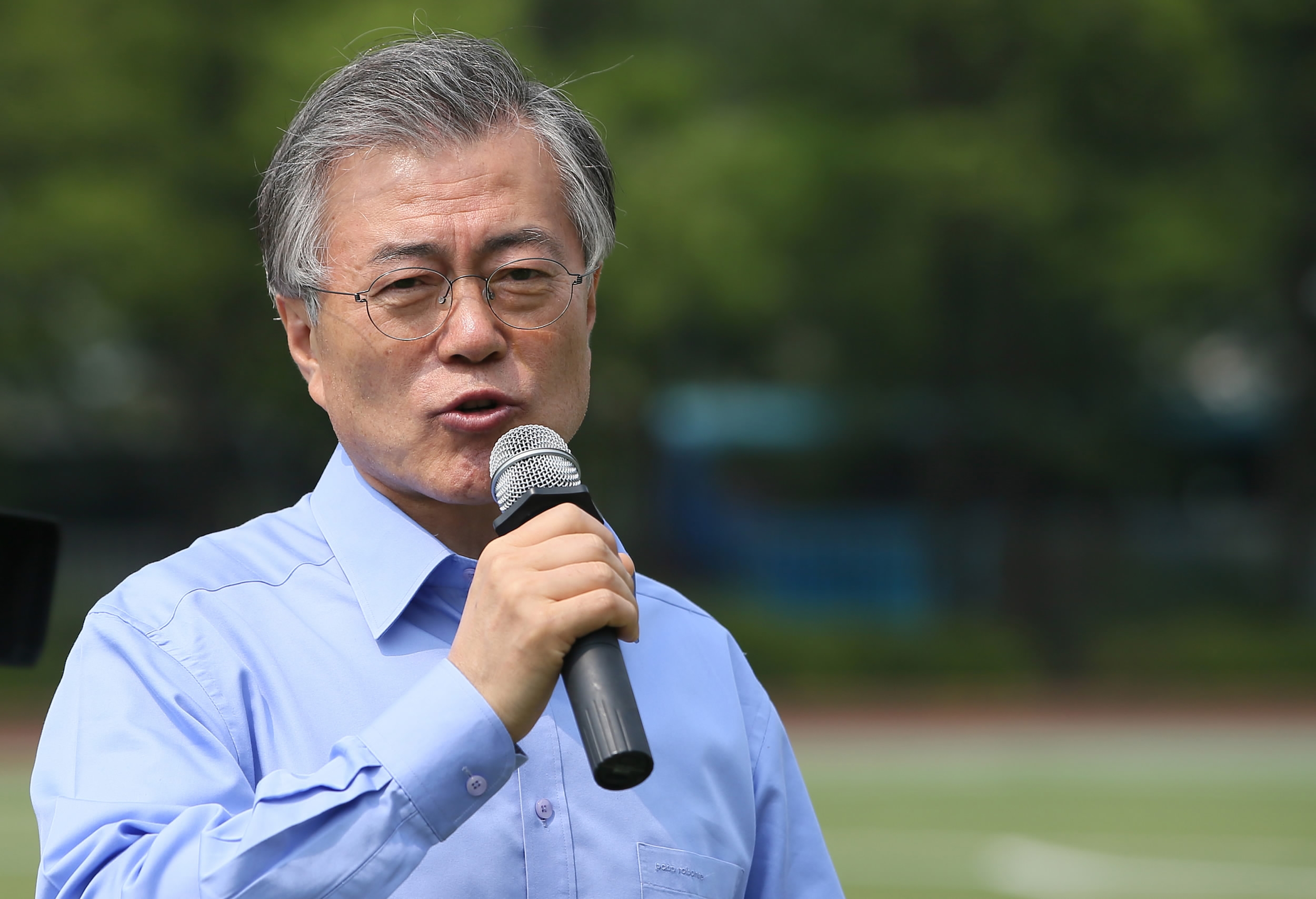
Business
16:19, 13-Mar-2018
Ageing nation: Young outnumbered by 'retirees' in S. Korean workforce
Nicholas Moore

More people aged over 60 are working than people in their twenties in South Korea, with elderly poverty, youth unemployment and an ageing population all pointing to a demographic crisis in the world’s 11th largest economy.
According to government statistics released on Sunday, the country currently has four million “economically active” people in their twenties – meaning that they are in employment or searching for work.

Elderly ladies at their seafood stall in Jungang Market on February 15, 2018 in Gangneung, South Korea. /VCG Photo
Elderly ladies at their seafood stall in Jungang Market on February 15, 2018 in Gangneung, South Korea. /VCG Photo
Worryingly, those same statistics show there are 4.2 million South Koreans in their sixties in the same position, working or looking for jobs. At their age, they should officially be enjoying retirement.
Despite its traditional Confucian culture of care for the elderly and a retirement age of 60, the plight of South Korea’s senior population is a warning for other Asian countries like Japan and China, which are also facing demographic ticking timebombs.
For almost half of people above the age of 65, South Korea’s status as a developed economy means very little. 49 percent of the country’s elderly population lives in poverty, compared to 21 percent in the US and just two percent in the Netherlands.
In December, more people died in South Korea than were born. Such trends mean up to 40 percent of the South Korean population will be aged over 65 by 2040.
Meanwhile, a study by Imperial College London last year suggested South Korea would have the world’s highest life expectancy by 2030, with women expected to live for up to 90.8 years on average.
Elderly self-reliance in place of government failure
The current failure to ensure comfortable living standards for elderly people will be a major concern for the country’s authorities in the next few decades.
Elderly South Koreans have no choice but to go out and work, typically taking up low-paid manual work to add to their 200,000 won (188 US dollars) state pensions just to afford food, accommodation and basic care, as basic costs of urban living increase dramatically.

South Korea's economic boom hasn't reached everyone: an elderly man works in Guryong slum near Seoul's wealthy Gangnam district. /VCG Photo
South Korea's economic boom hasn't reached everyone: an elderly man works in Guryong slum near Seoul's wealthy Gangnam district. /VCG Photo
Others are turning to get-rich quick methods – a recent survey by Korea Financial Investors Protection Foundation (KFIPP) found South Koreans aged over 60 invest more money in Bitcoin and cryptocurrencies than any other age group.
Soon Chae of the KFIPP told Joongang Daily there were concerns that older investors did not know the risks, and they should not “lose their retirement savings on cryptocurrency investments.”
South Korea was late to introduce its national pension system, which launched in 1988. Many of today’s retirees joined pension schemes in the twilight of their careers, while others poured their savings into education fees for their children.
President Moon Jae-in has pledged to increase the state pension to 300,000 won by 2021, but that could already be too little too late.
Youth unemployment of around 10 percent means a lot of young people will struggle to support themselves in the near future, let alone provide financial help to their elderly parents.

South Korean President Moon Jae-in has vowed to improve the country's labor market, but his efforts could be too little too late. /VCG Photo
South Korean President Moon Jae-in has vowed to improve the country's labor market, but his efforts could be too little too late. /VCG Photo
President Moon has pledged to create jobs and support entrepreneurship and small businesses, with the country’s economic system struggling to move on from a manufacturing-based model dominated by enormous conglomerates.
China watches on ahead of its own demographic shift
Japan, which has a population already in decline, announced last month plans to raise the country’s retirement age from 60 to 65 after 2020, as well as measures that would give elderly people the choice of withdrawing their pensions from the age of 70.
While China’s ageing population is a huge concern, the country arguably has more time to look and learn from the experiences of South Korea and Japan in order to better prepare for a demographic shift in the coming decades.
According to China Daily, the ageing population is a “solvable problem” thanks to the country’s two-child policy, reforms to the pensions and healthcare sectors and growing wealth and prosperity.
In January the Ministry of Civil Affairs announced that the number of nursing homes in China had tripled in the last five years, while greater investment is being pumped into technological advances like artificial intelligence, which can be applied to elderly care.

SITEMAP
Copyright © 2018 CGTN. Beijing ICP prepared NO.16065310-3
Copyright © 2018 CGTN. Beijing ICP prepared NO.16065310-3